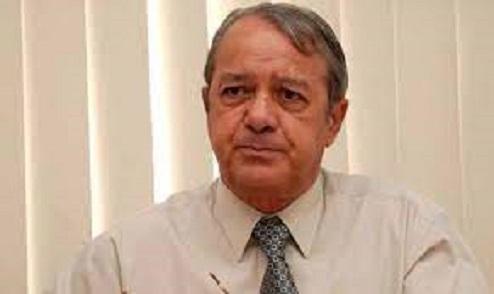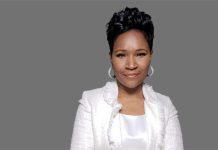
Africa-Press – Mauritius. Do you have the impression, Mr Rivière, that we are missing the point with all these endless discussions on electoral reform — the real problem being the political deadlock that the country has been experiencing for years already, at the level of parties, the political system and political discourse, and which no reform project of our electoral system proposed and tailor-made by our politicians could solve?
Lindsay Rivière: You are right. Instead of focusing on economic issues and social challenges, the Government is currently engaging the country in another sterile debate: an electoral reform that has no chance of succeeding.
The electoral reform proposed by the MSM-ML is, in effect, a stillbirth. The views expressed so far on the principles and modalities of the proposed reform are irreconcilable.
The project cannot, therefore, mobilize the three quarters of the votes required in Parliament for its adoption. So he’s not going anywhere. The sooner it is buried in its current form and moved on, the sooner the country will return to other priority issues. The Government knows, moreover, that this reform is impossible.
If he presents this draft, while knowing that it will not pass into the public opinion, it is to pretend to take into account international opinion, to seem to keep an electoral promise of 2014 and perhaps to start to interest a possible ally in the next elections.
* What can be blamed on this first draft, in your opinion? In its current formulation, the proposed reform is a charade. Everyone agrees to maintain the primacy of the system of ‘First Past the Post’ (FPTP) and thus guarantee a ‘workable majority’ to the winner.
But the very essence of the proposed Proportional Representation (PR) is to ensure at the same time a partial rebalancing of the seats to ultimately represent a fairer and more balanced picture of the popular vote obtained by the losers.
This necessarily implies variations in the final distribution of seats. However, the Proportional Representation proposed by the MSM-ML in no way reflects this desire to rebalance the composition of Parliament. It only faithfully ‘duplicates’ the result taken from the ‘First Past the Post’.
The Government (pushed in this direction by Sir Anerood) is paranoid from the Rodriguaise situation and remains fixed on the absolute need, as it is written in the Para. 2 (iii) “to ensure that the majority arising from the First Past the Post System remains the same after the allocation of pr and additional seats”.
This does not meet the intention of proportionate representation, insofar as the losers (poorly represented with regard to their real electoral strength) remain, despite the PR, just as badly represented in an enlarged Parliament.
There is therefore neither translation into seats of the score of the vanquished, nor real rebalancing, nor possible variation of the parliamentary forces present. So what is this reform for?
There are, moreover, other nonsense, such as the choice by party leaders of additional parliamentarians (which brings us back to colonial times when the English Governor appointed, according to his good will, certain Members of Parliament) or even the fact that there would be anti-defector regulations that would only apply “in the case of PR and additional seats”, and not in the case of elected FPTP members, always to guarantee tomorrow an exact representation of the result.
As for female candidates, no electoral reform is needed to ensure that political parties nominate as many women as they wish (and even a majority of female candidates) in elections.
* So does all this make the reform proposed by the MSM-ML Government a ‘non-starter’? Absolutely.
In fact, the real problem with a new electoral system incorporating a dose of ‘Proportional Representation’ is that there is not and never was, in the PTr and later in the MSM, a will real policy to change the system imposed by the English.
For a very simple reason: the current one-round electoral system suits them and ensures their domination of political life and alliances. It is the historical Opposition parties (PMSD in the 1960s, and MMM since 1976), which, often losing, have campaigned to correct the system, ensure more justice and better representation of their strength and that of others on field.
On this level, the country is swimming in full hypocrisy. The PTr and MSM don’t quite say ‘no’ but work behind the scenes so that a good formula is never developed and adopted.
So, ‘more of the same’, election after election! And when we have three quarters in Parliament, we say that we have no popular mandate to act and that we have to wait for the next mandate. The PTr and the MSM only slightly changed their position on the PR due to two factors:
(a) the beating suffered by the PTr in 1982 (no parliamentarian elected for 39% of the popular vote) and that suffered by the MSM in 1995 (no elected representative despite 21% of the vote), which necessarily made them think, and
(b) to cajole the MMM in the prospect of electoral alliances, in 2000 and 2014. But, deep down, the heart is not there and PTr and MSM hardly believe in it. All the good efforts of Rama Sithanen come up against this absence of political will and will not change anything.
Add to that the active opposition of the PMSD and a fringe of Muslim circles and the general population to the abolition of the ‘Best Loser System’, the probable challenges in Court and we have the verdict: Any proposed electoral reform will not pass. It’s a shame, it’s terribly frustrating but that’s how it is!
* There is something else: without falling into exaggeration to say that our representative democracy is in crisis, however the rate of abstention which continues to grow over the elections, the feeling of more and more people who believe that voting in elections is not a way to really change things – those should also challenge us, shouldn’t they?
The growing disillusionment, even the divorce between the population and the politicians, is one of the most serious dangers facing Mauritius today. If we are not careful, soon only 50% of people will vote.
An essential element of our public life is being stretched. This gradually weakens our democratic institutions and paves the way for a pernicious populism, a possible dictatorship.
It is essential to reverse this trend and restore the credibility of the political process. Just coming to say, like the MMM, that “not all politicians are the same” – even if it is true – is not enough.
The perception of politicians is extremely harsh. The country, especially its youth, are no longer found at all in the current political offer. The accumulation of controversies and scandals depresses the nation.
Some despair, others tell their children to leave without a return. The big word in relation to the political game is “disgust”. Many Mauritians say ‘not wanting to vote next time’.
However, not voting, withdrawing from the political game is not at all a solution. To begin with, not voting is in some way flouting a right that our ancestors acquired very hard for future generations.
Then it’s not very smart. I always say this to anyone who says they won’t vote anymore because they’re supposedly ‘disgusted’: “So in that case tomorrow shut up, since you have chosen not to have a voice and not to be part of the process.
So submit! “. I almost want to say, parodying who we know, “A voter either votes or shuts his mouth!” “. It is with such refusals to assume one’s civil rights coming from a large segment of public opinion that we see the emergence today in the world of Trumps or even far-right forces in Europe, Brazil and elsewhere.
It was because young Britons supposedly ‘disgusted with politics’ chose not to vote in the referendum (while the old Tories voted en masse) that they got Brexit and they will get tomorrow to suffer all its effects.
Not speaking, not writing, not protesting, not voting, not demonstrating and retreating to your cave to sulk, that changes absolutely nothing. Because the political circus continues even more with its imperfections and the country has to turn and be governed by someone in the meantime, right?
* Do you mean that politicians are not the solution, they are part of the problem? The political parties are primarily responsible for this state of affairs, by not listening to the citizens. They must fully measure the extent of this epidemic of abstention which is spreading and threatening our democracy, before it is too late.
Leaders need to understand that their word is now terribly devalued, that party structures are outdated, that people have had enough of them and that with modern means of communication, everyone is now watching them all the time. They are, of course, a large part of the problem, but at the same time they also remain and must remain part of the solution.
There are several causes for the current political decline but it must be emphasized that one of the big problems is that the quality of the Mauritian political class has dropped considerably since Independence and continues to drop from Parliament to Parliament.
Without wanting to be unnecessarily unpleasant, we must start saying it loud and clear and question the party leaders about their entourage and their insistence on imposing so many non-values on us. You know, institutions are only worth what the men and women who compose them are worth.
In the Independence Labor Party, to form a government, Sir Seewoosagur had a considerable reservoir of collaborators with very strong personalities, Veerasamy Ringadoo, Satcam Boolell, Harold Walter, Kher Jagatsingh, Guy Forget, Raymond Rault, Razack Peeroo , etc.
, with many more behind the door. Today, apart from a few worn-out tenors, who can Navin Ramgoolam really count on to take this country further?
Gaëtan Duval could mobilize, for a government, Guy Ollivry, Maurice Lesage, Gaëtan de Chazal, Jean Ah Chuen, Cyril Leckning, Ebrahim Dawood, Raymond Rivet and others. What team will Xavier have?
Paul Bérenger, at MMM, formerly relied on the advice of Cassam Uteem, Jean-Claude de l’estrac, Vidula Nababsingh, Kader Bhayat, Ramdath Jaddoo, Jayen Cuttaree, Alan Ganoo and many others.
He has now emptied himself. Who will he have tomorrow, in 2019 in his team? At the MSM, everyone sees who surrounds Pravind Jugnauth, their behavior, in what circumstances they come and go. Does the PM believe he can, alone, in 2019 embody the new times?
Our political class is home to too many opportunists and incompetents of all kinds; our pool of political talent is drying up even as the issues become more complex and the powers and responsibilities of ministers increase. The question must then be asked: Where is the vessel Maurice going with such crews?
The irony of the situation is that never before as today has Mauritius counted in its civil society so many talents, skills, young people open to the world, so many academics, high-level technicians level that is hardly used.
We are barely scratching the potential of this country. All that is and all that could be! Every day, we want to say to ourselves: “My God! Such a waste ! »
* The new generation of politicians does not inspire us with confidence, either?
We must respect any desire for commitment but we must also, in view of certain practices, ask ourselves: do those who arrive want to serve or serve themselves?
You always have to trust young people, encourage them. Initially, they all want to do well. But Mauritian politics seems to have this terrible ability to recover and pervert so much good will.
We must be much, much more demanding vis-à-vis those who join our political class. I observe with great attention the ‘third generation MMM’ which raises its head today alongside Bérenger, those who join Alan Ganoo, Xavier Duval and Roshi Bhadain.
At the MMM, the Leader seems to have taken a decisive turn in recent months, letting the Obeegadoo, Jeeha, Labelle, Sorefan and others of the ‘second generation MMM’ go without qualms and playing the card of youth and of renewal.
Paul Bérenger really seems to be betting on youth and also working on a ‘MMM revival’, not by cultivating nostalgia for yesterday’s MMM but by pleading for a reinvented MMM.
Have you noticed how he wrote off Steve Obeegadoo (whom I have always considered his natural successor) by telling the young militants of Curepipe quite curtly that we must “now put an end to the romanticism of yesterday’s MMM to “assume the century and the realities of today”?
As it happens, the MP and the Obeegadoo/Jeeha Group want, on the contrary, to embody a return to the MMM of yesterday. Curious all this, don’t you think?
* You have always maintained that Mauritian political life is ‘blocked’, with four major parties. So the same leadership will continue, do you think? Will it still be the same? I still think so.
The game has been blocked for 50 years by the model that was imposed on us at Independence: same constitution, same electoral system, same need for electoral alliances, same dictatorship of leaders, same ethnic calculations.
We can deplore it, be frustrated as much as we want, dream with our eyes open: there is nothing to be done. There are only four major parties in Mauritius and everything revolves around them: PTr, MMM, MSM and PMSD.
All the other groups are only branches of these four big trees, without the possibility of parliamentary representation outside the alliances. There will be no new major political force in Mauritius between now and the next elections, no Mauritian Macron coming out of nowhere to sweep everything away, no ‘third way’.
Bhadain, Ganoo and others will quietly end up in one alliance or another. We must stop dreaming of new parameters. It can, of course, happen that judgments in Court, unfavorable against Navin Ramgoolam or Pravind Jugnauth, put their ambitions on hold or even put an end to their career.
In this case, we would then see Arvind Boolell and Nando Bodha emerge, but even these possible transitions would not change much in the rules of the game, the blockages and the general political framework.
* Is it therefore necessary to re-examine our Constitution so that we can free ourselves from the various blockages that imprison the country and its development at present?
Ideally, yes. We do indeed need a new Constitution, with more balanced powers, a more ‘neutral’ State, etc. But, again, Who will initiate this process?
Who will appoint a Constitutional Commission? Who will bring before Parliament the terms of a new Constitution? And what are the chances that these reforms will be passed by a three-quarters majority by elected PTr, MMM, MSM or PMSD? You have seen the fate of electoral reform. Do you really believe that there will be a majority of reformers in any new Parliament?
It is important to always incorporate this element into our thinking: the PTr and the MSM have absolutely no interest in changing anything fundamental in our country, because the current general framework ensures and guarantees their power.
The MMM and the PMSD alone cannot do anything about it, despite their good will or their frustration. The Mauritian Constitution was tailor-made by the English for SSR. With her three-quarters majority to change anything, she is irremovable.
Apart from the Republic with limited changes, it suited Sir Anerood who cast himself in the role perfectly and it suits Navin Ramgoolam and Pravind Jugnauth perfectly, as it will suit future Labor and MSM leaders the day after tomorrow.
* we wonder if the main political parties of the country really want to reform our electoral system.
In view of the balance of power which presents itself on the political spectrum at present and which seems to continue to prevail until the next general elections, the current electoral system should work to the advantage of both the PTr and the MMM with political conditions similar to 1976…
Talking about 1976 and “similar political conditions for the MMM” brings us back to the question of “going alone” in the elections. Many people in all parties, and not only at the MMM, are wondering about the possibility of “going alone, even if it means making a coalition afterwards”.
This is a perfectly legitimate ambition, a very mobilizing objective at the base. Moreover, many people have a lot of scores to settle with other parties and do not want to help these parties.
Many also believe that their party can, taking advantage of the split in the vote, “pass between and win”. Everyone is “fed up” with alliances where you have to compromise, sacrifice followers at the altar of communalism and also seem to condone the mistakes and abuses of allies.
One can easily understand all this and respect it. But is it really realistic? This is the question I have always posed publicly, inviting the country to be more rational and less emotional on the issue.
I am, in fact, one of those who believe that our electoral and political system imposes alliances on parties, willy-nilly, that there will be alliances as usual in 2019, that no one will take the risk of being rolled out of alliance or seeing the country ungovernable; and that, despite what everyone says, no one will go alone in 2019 or 2020, unless they are let down by everyone else and find themselves forced and forced to go alone (like the MMM in 2010) , for lack of an invitation.
To win an election and govern stably in Mauritius, you need a force capable of mobilizing at least 400,000 voters and one million votes, winning in a dozen constituencies, being representative of all regions, enjoying multi-ethnic support, offer a national image, an acceptable program and end up with at least 35 seats in Parliament.
Nobody can meet these conditions – neither the PTr, nor the MSM, nor the MMM, let alone the PMSD. No party has ever won alone. All elections since 1963 (55 years) have been won by pre-electoral coalitions concluded on these bases.
While “going alone” may seem seductive, the dangers for all parties are enormous: risk of being swept everywhere, even with honorable scores and of not ending up in Parliament; risk of not being able to ensure the ethnic representativeness required in the event of victory;
risk of seeing ‘the others’ conclude a coalition at the last minute and find themselves alone facing an invulnerable force (like the MMM in 2010 suddenly finding itself facing a surprising PTr-MSM alliance);
risk of not being able to negotiate a post-election alliance or of being subjected to infamous blackmail; risk of seeing its leaders eliminated now that we see that there will probably be no electoral reform;
risk that the country will be ungovernable if the parties do not agree on a coalition government. We are still far from 2019 or 2020 but we will have to ask ourselves the following question little by little: Who can really consider going alone?
A PTr whose MSM will ensure that no one forgets and forgives his escapades of 2005-2014? An MSM crushed under the weight of scandals and controversies during his time in government?
An MMM down to 14% in Quatre Bornes? A PMSD whose image has been shaken by the extent of its defeat in this city and the loss of its candidate’s deposit? Who ?
Until proven otherwise, I therefore still believe that there will indeed be alliances in the next elections, probably led by the PTr and the MSM, even if the contours of these alliances could remain unclear during the long months separating us elections.
Political alliances in Mauritius are never marriages of love but correspond to ultimate reflexes of survival. The MSM will need the MMM or bringing back the PMSD to hope for a future.
The PTr will need the PMSD and the MP to reach out to cities and project a national image. The MMM will need allies to rebuild its health in rural areas and hope to share power.
No one likes anyone in politics and has no interest in giving gifts to anyone. But necessity makes law. How leaders will sell these realities to their followers is another story.
What is certain is that Pravind Jugnauth, Navin Ramgoolam, Paul Bérenger, Xavier-Luc Duval and Alan Ganoo would all benefit from not proclaiming too much: “Fontaine, I will never drink your water. They would singularly complicate their lives tomorrow, when it will be necessary to explain.
For More News And Analysis About Mauritius Follow Africa-Press






